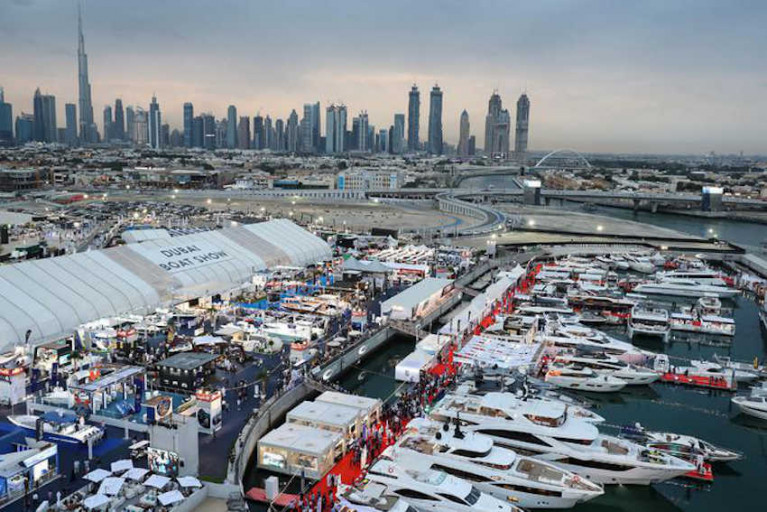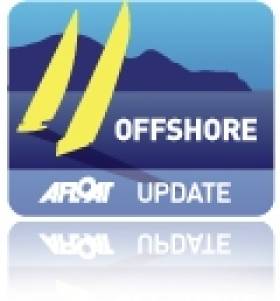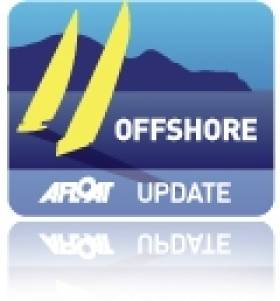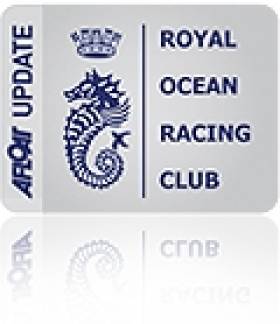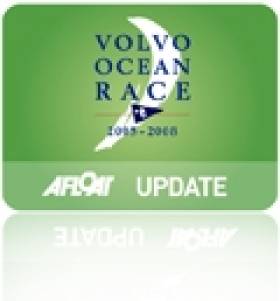Displaying items by tag: Dubai
Dubai Boat Show Postponed Over Coronavirus Concerns
The Dubai International Boat Show that was scheduled to take place next week has been postponed to November “in light of the evolving global developments” around the spread of coronavirus.
International Boat Industry says the major trade show, which has been set to run from 10-14 March, will now take place from 24-28 November to coincide with Expo Dubai 2020.
In a statement, organisers said: “Our decision comes after much deliberation in consultation with the event’s main industry stakeholders and partners, who have strongly endorsed our prioritisation of the collective interests of both the global exhibitors and the key buyers from the region.”
The statement also read: “Whilst the UAE remains completely safe for travel, and has deployed the strictest medical and hygiene protocols, we fully recognise that for some specific shows, we have a high majority of key participants significant to the event’s programme that are unable to travel due to restrictions in their home country. We continue to focus on prioritising the delivery of a strong international participation in these extraordinary times.”
A decision has not yet been reached on whether the Dubai International Superyacht Summit, also scheduled for next week, will go ahead. News on this event is expected by Wednesday (4 March).
IBI News has more on the story HERE.
Dublin Yacht Claims Middle East Sailing Record in Dubai to Muscat Race
#offshore – As Afloat.ie reported earlier this morning, Adrian Lee's Cookson 50, Lee Overlay Partners, has claimed line honours for the IRC Racing Division in the 2013 Dubai to Muscat Race writes Louay Habib
The Irish canting keel racing yacht crossed the finish line at Muscat on Tuesday, 5 November at 11:58 40 seconds (local time). Lee Overlay Partners elapsed time for the race was 2 Days 53 Mins at 40 Secs, setting a new course record for the 360-mile race.
Adrian Lee was full of praise for his crew, after breaking the monohull record for the longest offshore yacht race in the Arab region that has lasted for 13 years.
"The crew have been absolutely first class, we have sailed together for many years and beating the course record is a very special moment for us. We think we have done well on handicap but we will just have to see how the competition does before we will really know. I think we made some excellent tactical decisions and if we had to run the same race again, I doubt if we would have changed much. What has really surprised me about the race is the 30 knots of wind we experienced for most of yesterday. It was not forecast and seemed to just come from nowhere. The boat was sitting at 16 knots for long periods and flying down the beautiful Omani coast line was very special. We have received a very warm welcome at Bandar Al Rowdha Marina"
Lee Overlay Partners for the Dubai to Muscat Race: Adrian Lee, James Hemingway, Ilya Lee Paveliev, Scott Wilson, Emmet Kerin, James Gunne, Tim Corney, Neil Harrison, Ruairi Herraghty, Robert Witte and Daniel McKeown, who took the photo as the team crossed the finish line.
The 22nd Dubai to Muscat Race is organised under the auspices of the Royal Ocean Racing club. HH Sheikh Khaled Bin Zayed Al Nehayan was the guest of honour for the start. The 360-mile race is the longest offshore yacht race in the region and is organised by The United Arab Emirates Sailing and Rowing Federation in association with the Ministry of Sports Affairs, the Sultanate of Oman.
Dublin Sailor Leads the Fleet From Dubai to Muscat
#offshore – Dublin''s Adrian Lee leads the fleet out of Dubai in a non stop offshore race to Muscat today. The Dun Laoghaire Cookson 50, Lee Overlay Partners from the Royal St. George Yacht Club was given a royal send off when HH Sheikh Khaled Bin Zayed Al Nehayan, President of the UAE Sailing and Rowing Federation, was the guest of honour for the start of the 22nd edition of the Dubai to Muscat Yacht Race.
All the yachts are now sailing 360-miles non-stop to Muscat.
Lee is no stranger to international offshore success taking RORC's Caribbean 600 in 2009.
Scroll down this page to listen to an interview with Adrian from the race course via satellite phone with Louay Habib.
Irish Sailor Wins Dubai to Muscat Race
#rorc – After three and a half days of racing the prestigious Dubai to Muscat Race came to a conclusion with all yachts accounted for on the morning of Thursday, 22nd November. Racing under the RORC'S IRC Rule, the overall winner of the race was announced as Doug Worrall's First 36.7, Shahrazad, with Cork sailor Kieran Walsh on board, which also claimed line honours. Listen to podcast with Walsh below.
Recognised by the Royal Ocean Racing Club, the 2012 Dubai to Muscat Yacht Race is organised by the UAE Sailing & Rowing Federation and hosted by the Dubai Offshore Sailing Club. HH Sheikh Khaled Bin Zayed Bin Saqr Al Nahyan, Chairman of the UAE Sailing & Rowing Federation was the guest of honour for the start.
"We stayed out of trouble and kept going, it was as simple as that." Suggested Doug Worral "We stayed offshore at the start in the Arabian Gulf, to keep away from fishing nets and we got the added bonus of more wind than the yachts that chose the inshore option. Later in the race, after we rounded Khasab, we could see a terrific storm ahead and we prepared to reef and eased sheets to avoid it, this good seamanship was rewarded as we managed to skirt around the edge of the storm and in control, we had excellent boat speed.
I have always maintained that the last 12 hours of an offshore race is crucial; you are tired and that is when the mistakes can creep in but we kept focused and finished off the job. I am now looking forward to race to Khasab."
Vice Commodore of the Dubai Offshore Sailing Club, Calum McKie racing his Grand Soleil 37, Boracic was second and commented shortly after mooring up in Bandar Al Rowdha Marina: "This was a very competitive race and we experienced a huge range of conditions, probably the most bizarre was a series of water spouts, which caused very confused winds. I wouldn't say there was one particular tactical decision that went against us but after we passed Fujairah, we went inshore and got the wrong side of a big shift. At that stage we were looking like leading the race but fell behind Shahrazad and we never made up the lost ground. All credit to Doug's team they sailed extremely well and deserve their victory. Veterans back at DOSC have told me that this is a hard enough race just to finish and Boracic has a 100% record, so I am happy with that."
Matt Britton's J/92 Privateer was the smallest yacht in the class and claimed third overall, short-handed it would have been tough going on the 30-foot yacht.
Barrie Harmsworth's custom 43, Bin Toak had four Emerati crew on board. Abdul Aziz Alobaidli, Ahmed Qubasi and Ahmed al Marzooqi and Adil Khalid. All four are experienced laser sailors and Adil was part of the Volvo Ocean Race crew on board Azzam, the first Arabic entry in the prestigious round the world race.
"We lost out by going inshore on approach to The Straits of Hormuz." Admitted Barry. "We ran out of wind and managed to get tangled in a fishing net, which was not exactly what we intended but that's just how it goes sometimes. However, I will never forget the first night, passing through the Strait of Hormuz. Adil (Khalid) was on the tiller and he has really become a top class sailor after competing in the Volvo. On a tight reach, the boat was doing 12 knots over the ground with the crew on the rail grinning from ear to ear. I have done this race a few times and just sailing through the strait is a magical moment but to be going at that speed at night with exceptional sailors on board was just magic."
With all of the yachts in the Dubai Muscat Race finished, attention in Muscat has turned to two days of inshore racing. Hundreds of sailors from Oman and overseas are taking part in the reatta. However, next Saturday, 24th November marks the return to offshore action with start of 230-mile Bank of Beirut Chairman's Cup Race to Khasab with a prize fund of $50,000, generously donated by the title sponsor.
All Eyes on Dubai for Pre-Owned Boat Show
#TRADE NEWS - Growing demand in the Middle East for pre-owned boats is creating a new market for yacht owners looking to sell, as UAE's The National reports.
This weekend's second-hand boat trade show at Dubai Creek Marina is expecting more than 7,000 visitors to peruse the more than 85 vessels on display, comprising the widest selection of boats for sale.
For this year the retail area has been expanded by 20% to make room for new retailers and exhibitors, including a new zone for personal water craft such as Jet Skis.
"There is a lot more demand [in the Middle East] for second-hand boats than new boats. The market has been growing, we have a lot of people from Qatar, Saudi Arabia, Bahrain who come to Dubai to buy a boat," said marina operations manager Abdulla Ali Al Noon.
It's a market that's being increasingly sought by Irish dealers, too, following MGM Boats' visit to the UAE for the Dubai International Boat Show this past St Patrick's weekend.
One of the companies participating in the pre-owned show this year is Al Marakeb Boat Manufacturing, whose Nour Al Sayyed says: "The crowd at the show are people who already know they're buying a boat, it's just a matter of picking one."
The National has more on the story HERE.
VOR Second Leg Cut Short Over Piracy Concerns
#VOLVO OCEAN RACE - The second leg of the Volvo Ocean Race from Cape Town to Dubai has been cut short by organisers as a result of the growing threat of piracy in the Indian Ocean, The Irish Times reports.
The six yachts competing will be protected by armed guards as they are shipped on a secret route to the United Arab Emirates due to piracy concerns.
The boats will be transported by ship from an undisclosed location to Sharjah in the Arabian Gulf, from where they will sprint to the finish line in Abu Dhabi.
All six teams are currently in Cape Town, with Team Sanya, PUMA and Abu Dhabi Ocean Racing hoping to get back in the race after retiring in the first leg.
As previously reported on Afloat.ie, NATO recently foiled a pirate attack on a Spanish fishing vessel between the Seychelles and the Somali coast.
The Irish Times has more on the story HERE.



























